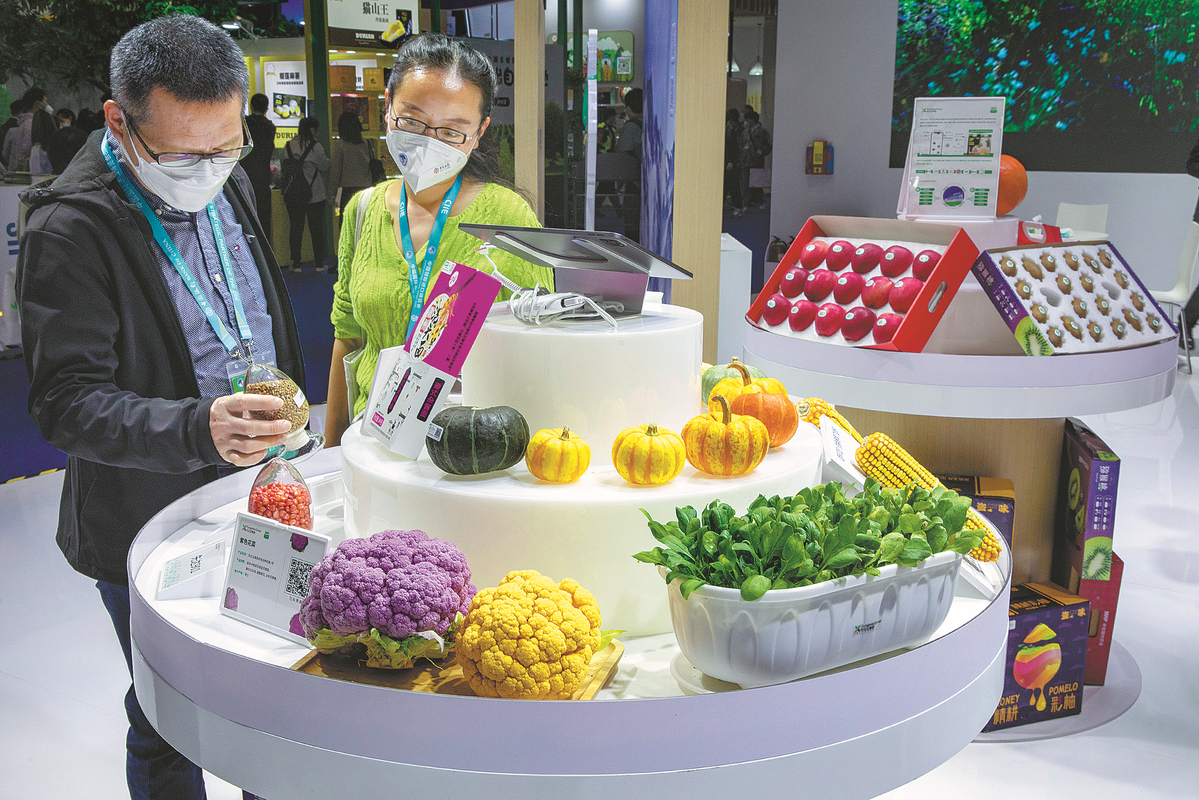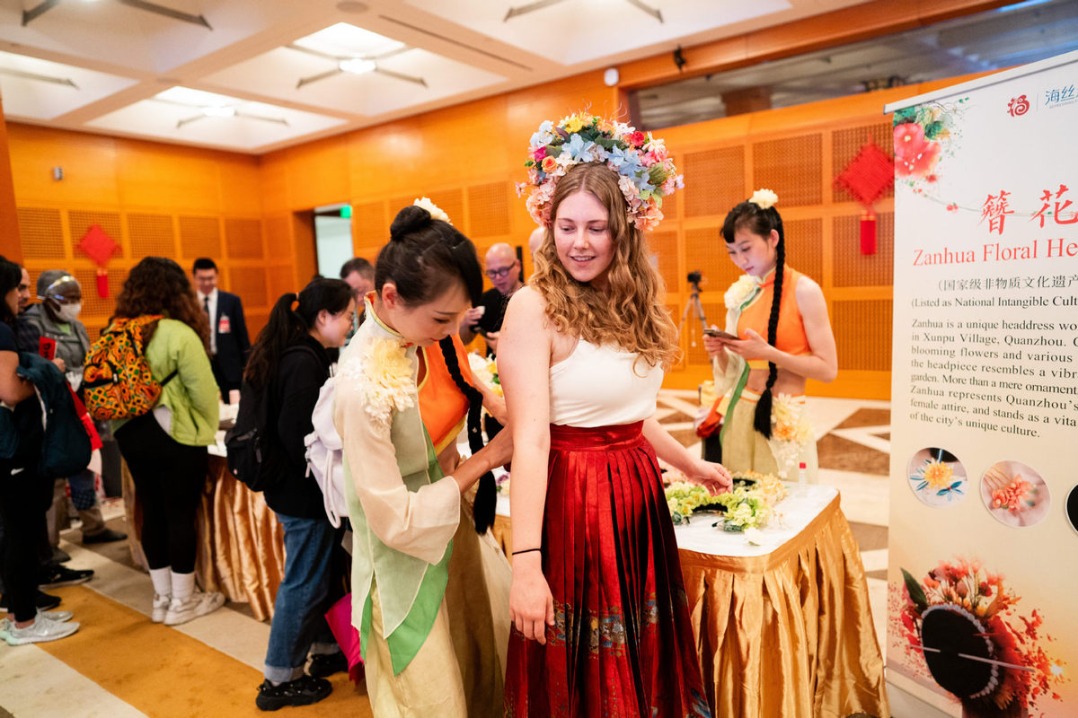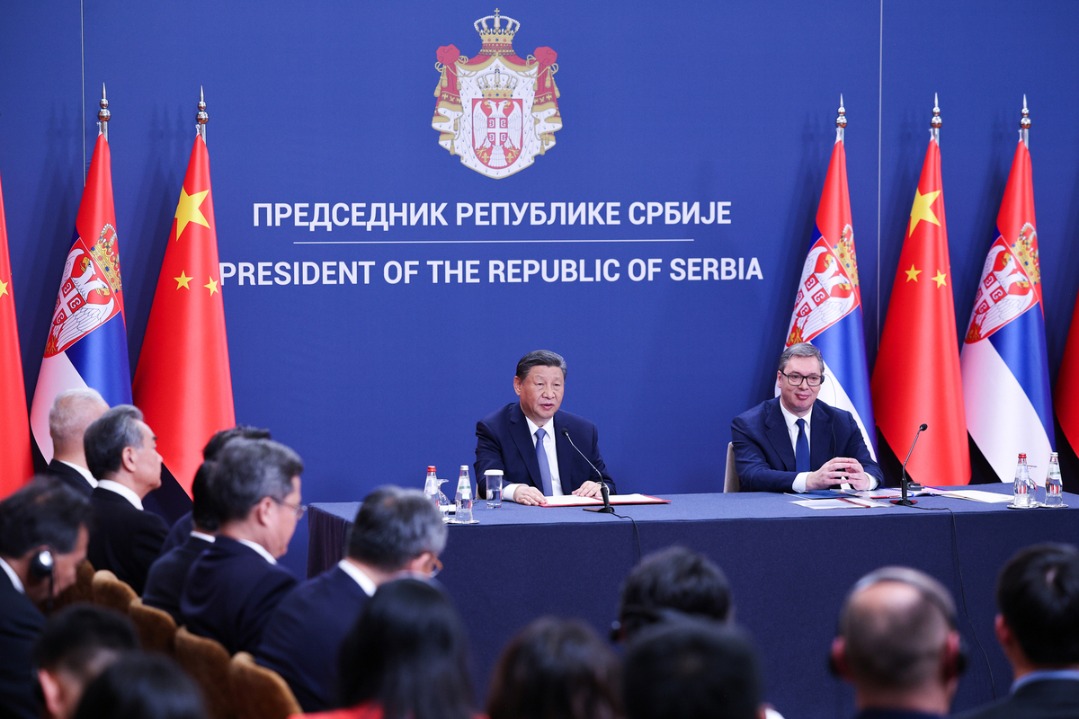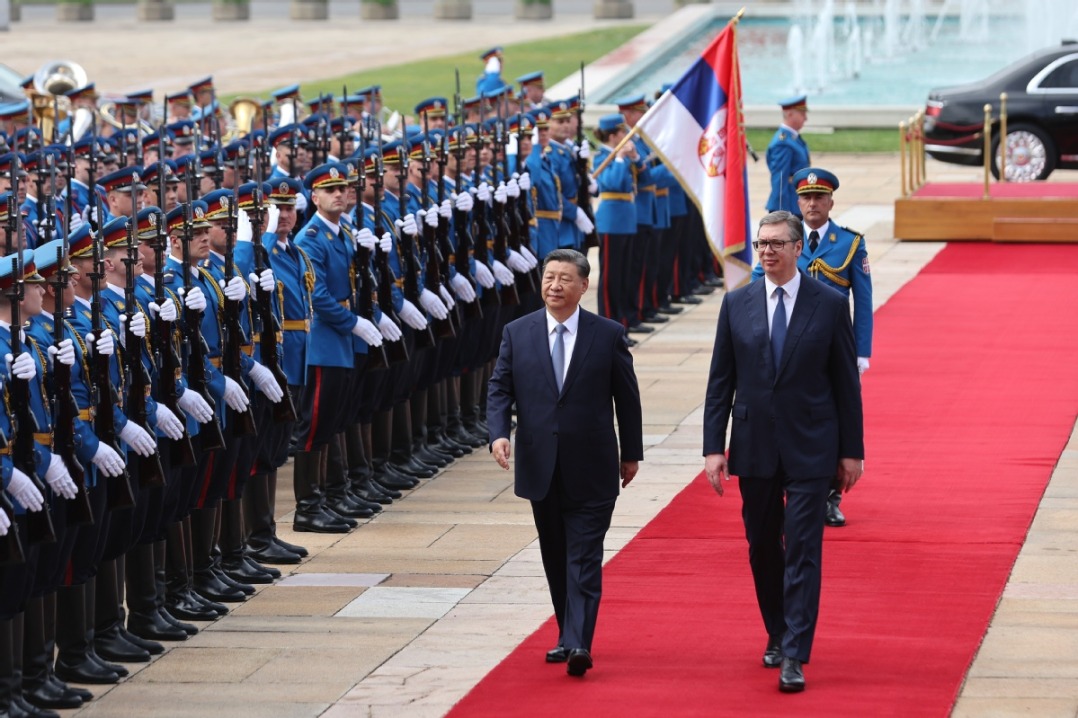Syngenta to tackle crop impact on climate
By WANG ZHUOQIONG | China Daily | Updated: 2024-05-09 09:18

Seeds and pesticides maker Syngenta Group has released a report prioritizing key innovation areas to produce more food with less climate impact.
"The future of agriculture hinges upon sustainability ... Our priorities ensure the integration of sustainability at both strategic and operational levels in a way that will truly provide long-term value," said Jeff Rowe, CEO of Syngenta Group.
The group will focus on boosting soil health, driving digital innovation and supporting biological revolution, said Alexandra Brand, executive vice-president of sustainability and corporate affairs of Syngenta.
She said agriculture is increasingly becoming technology-intensive because it links with life and environment amid a great deal of uncertainty.
"Innovation is the answer to two major challenges of feeding a growing population and tackling climate change," said Brand, adding that the group, whose 2023 sales reached $9.6 billion in China and $32.2 billion worldwide, is committed to bringing and advancing more such global innovations to China, where it employs more than 19,000.
For example, some of the group's world-class crop protection technologies have a significant opportunity to lower pesticide use by as much as 90 percent. Agriculture accounts for 22 percent of global greenhouse gas emissions and 70 percent of the world's freshwater use.
Another example is Syngenta's broad-spectrum fungicide Adepidyn. In less than four years since its introduction in the Chinese market, Adepidyn technology has contributed to more than 800 metric tons of reduced pesticide usage, with more than 6 billion kilograms of added yields, and adding 30 billion yuan ($4.1 billion) to farmers' income.
The project is one of the incentives for Syngenta to create its open platform in China, known as MAP or Modern Agriculture Platform, which combines Syngenta's global and local agricultural input innovations across seeds, pesticides, fertilizers and biologicals.
Though MAP, the company is expected to introduce more digital and modern farming practices and services, to better serve and support local farmers through more integrated solutions.
"As one of our new set of sustainability priorities and targets, we have committed to expanding our MAP centers to 1,000 across China by 2028 and increasing the income of served farmers versus non-served farmers by 8 percent," said Brand, who visited Beijing recently.
The group has invested in cutting carbon emissions through the establishment of its first carbon neutral factory at its crop protection plant in Kunshan, Jiangsu province.
The team has been embedding carbon-reduction practices across its operations — from production to packaging, and across supply chains, she said.
Syngenta encourages the adoption of regenerative agriculture practices so as to help farmers improve productivity, soil health, biodiversity and climate as well as their income and access to inputs, knowledge, finance and markets, she said.
The new priorities leverage the power of innovation, guide investments and collaboration as well as add a new level of transparency through a Portfolio Sustainability Framework, Syngenta said in its report.
























